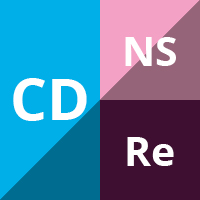
Validation therapy for dementia
Abstract Background Validation therapy was developed by Naomi Feil between 1963 and 1980 for older people with cognitive impairments. Initially, this did not include those with organically-based dementia, but the approach has subsequently been applied in work with people who have a dementia diagnosis. Feil’s own approach classifies individuals with cognitive impairment as having one […]

Transcutaneous Electrical Nerve Stimulation (TENS) for dementia
Abstract Background Transcutaneous electrical nerve stimulation (TENS) is the application of an electrical current through electrodes attached to the skin. The commonest clinical application of TENS is pain control. TENS is also used occasionally for the treatment of a range of neurological and psychiatric conditions including drug and alcohol dependence, headaches, and depression. TENS is […]

Botulinum toxin type A versus botulinum toxin type B for cervical dystonia
Abstract Background This is an update of a Cochrane review first published in 2003. Cervical dystonia is the most common form of focal dystonia and is a disabling disorder characterised by painful involuntary head posturing. There are two available formulations of botulinum toxin, with botulinum toxin type A (BtA) usually considered the first line therapy […]

Multidisciplinary biopsychosocial rehabilitation for neck and shoulder pain among working age adults
Abstract Background Multidisciplinary biopsychosocial rehabilitation programs for neck and shoulder pain require substantial staff and financial resources. Despite questionable scientific evidence of their effectiveness, they are widely used. Neck and shoulder complaints are common among working age adults and they are often associated with physical work load and stress. Pain in the neck and shoulder […]

Therapies for depression in Parkinson’s disease
Abstract Background Depression is one of the most common neuropsychiatric disturbances in Parkinson’s disease. 40% of observed variation in quality of life is due to depression. However, there is little hard evidence of the efficacy and safety of antidepressant therapies in Parkinson’s disease. Objectives To assess the efficacy and safety of antidepressant therapies in idiopathic […]

Cognitive behavioural interventions for sleep problems in adults aged 60+
Abstract Background The prevalence of sleep problems in adulthood increases with age. While not all sleep changes are pathological in later life, severe disturbances may lead to depression, cognitive impairments, deterioration of quality of life, significant stresses for carers and increased healthcare costs. The most common treatment for sleep disorders (particularly insomnia) is pharmacological. The […]

Therapy-based rehabilitation services for stroke patients at home
Abstract Background Stroke Unit care is now accepted as an effective service model for hospital care, but the effectiveness of outpatient care is less certain. This review focuses on therapy-based rehabilitation services targeted at stroke patients living at home. Objectives To assess the effects of therapy-based rehabilitation services targeted towards stroke patients resident in the […]

Physical exercise for sleep problems in adults aged 60+
Abstract Background The prevalence of sleep problems in adulthood increases with age. While not all sleep changes are pathological in later life, severe disturbances may lead to depression, cognitive impairments, deterioration of quality of life, significant stresses for carers and increased healthcare costs. The most common treatment for sleep disorders (particularly insomnia) is pharmacological. The […]

Sensory stimulation for brain injured individuals in coma or vegetative state
Abstract Background Coma and vegetative state follow traumatic brain injury in about one out of eight patients, and in patients with non traumatic injury the prognosis is worse. The use of sensory stimulation for coma and vegetative state has gained popularity during the 1980’s but beliefs and opinions about its effectiveness vary substantially among health […]

Pharmacological treatment for aphasia following stroke
Abstract Background Aphasia describes language impairment associated with a brain lesion. Objectives To assess the effects of drugs on language abilities when given to people with aphasia following stroke. Search methods We searched the Cochrane Stroke Group Trials Register (last searched: May 2001), and reference lists of relevant articles to December 1998. We also contacted […]

